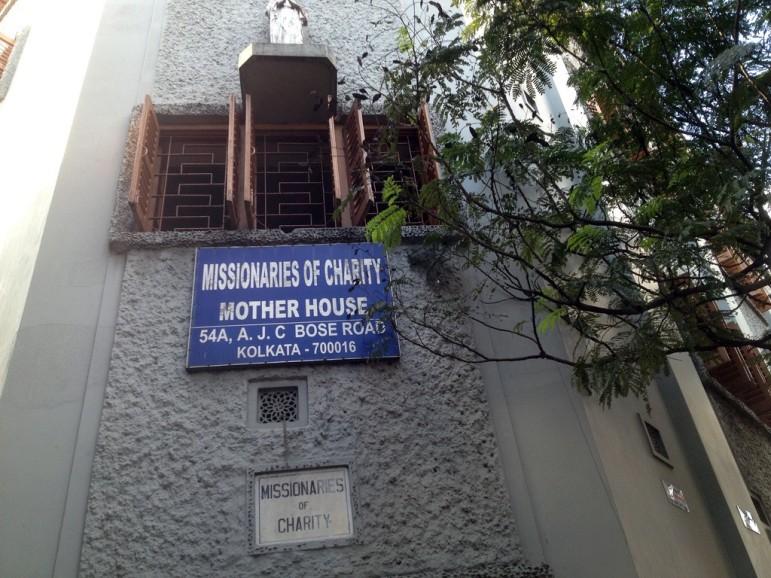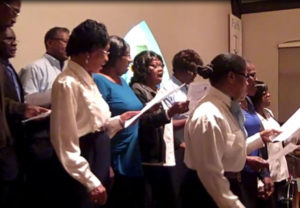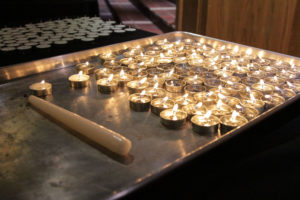
October 9, 2015; NPR, “The Two-Way”
This week, the Missionaries of Charity founded by Mother Teresa announced that it would no long offer adoption services in India, following liberalized adoption guidelines announced over the summer that include allowing single or divorced individuals to apply for adoption services. Thirteen orphanages will be de-registered.
According to NPR, the nun in charge at the Missionaries’ home in North Delhi told local media:
The new guidelines hurt our conscience. They are certainly not for religious people like us. What if the single parent who we give our baby [to] turns out to be gay or lesbian? What security or moral upbringing will these children get? Our rules only allow married couples to adopt.
Here in the U.S., adoption agencies in Massachusetts, Illinois, California, and other states have also shuttered their doors rather than be forced to violate their religious beliefs, and same-sex couples wishing to adopt continue to face barriers, despite the Supreme Court decision this summer affirming their right to marry.
Mississippi has an outright ban on gay adoption that it enacted in 2000. However, civil rights lawyers have filed a suit in federal court, and no one expects the ban to hold up. (In fact, as Trudy Ring writes this week in the Advocate, the “roadblocks” the state is trying to put up in the lawsuit challenging the ban “do not even amount to potholes or flat tires,” according to the plaintiffs’ attorneys.)
Not surprisingly, one of the most vocal proponents of the argument that serving same-sex parents violates an organization’s religious liberties is the Catholic Church and its affiliated adoption agencies. Faced with the decision between complying with laws requiring it to serve gay and lesbian prospective parents and shutting down, the church has in all cases chosen the latter option.
Sign up for our free newsletters
Subscribe to NPQ's newsletters to have our top stories delivered directly to your inbox.
By signing up, you agree to our privacy policy and terms of use, and to receive messages from NPQ and our partners.
Activists have been keeping a close watch on Michigan, which passed a law in June allowing adoption agencies that work with the state to refuse prospective parents if doing so would violate the agencies’ so-called faith-based beliefs. Governor Rick Snyder, like lawmakers who have passed similar laws in Texas, Alabama, Florida, Kansas and Virginia, cites his state’s reliance on faith-based agencies to carry out a significant share of adoption and foster care services. They see their measures as preventing agencies from having to make the decision to stop providing services.
According to the Detroit Free Press, nearly half of the close to $20 million in state and federal funds went to faith-based adoption and foster care services in the 2014–15 budget year. Two of the most well established agencies, Bethany Christian Services and the Michigan Catholic Conference, account for up to 30 percent of the foster care and adoption placements in the state.
An analysis conducted by the Williams Institute at UCLA estimates that more than 3,400 adopted children under age 18 in Michigan are being raised in homes headed by gay and lesbian individuals or same-sex couples. As the study points out, if the Michigan law had been passed before those children were in adoptive homes, “these families could have been turned away by some agencies, and some of these children would have remained in foster care for a longer period of time awaiting adoption.”
Michigan’s law is in a slightly different category than broader religious exemption laws because, as Alana Semuels points out in The Atlantic, “it focuses solely on agencies providing adoption services, and because those agencies work for the state but are not the state itself. It’s still unclear if, in a state where it’s legal for individuals to discriminate against people because of their sexuality, private agencies that do the work of a state that has to recognize same-sex marriage can discriminate, too.”
The Williams Institute study brings up another consideration, that of adoption incentive payments that the federal government offers to states. Citing the millions of dollars that are at stake in Michigan (and other states), the report concludes, “These incentives are put at risk when adoption becomes mores difficult among the estimated 35,000 LGB adoptive parents in the state.”
Nationwide, not all religiously affiliated adoption agencies are using the religious exemption law. Lutheran Services Carolinas, for instance, has been placing children with non-traditional families since at least the 1990s. As Lindsey Brunson and Nick Niedzwiadek report this week, the agency is know for welcoming all qualified applicants, regardless of their marital status or sexual orientation. They quote Kimberla Burrows, the agency’s special needs adoption program manager, who says restricting who can adopt would result in fewer placements. “We have adopted children into homes that did not believe in anything—they were atheists—[and] I’ve placed children into homes with same-sex couples. As long as they are capable of taking care of a child then that’s what’s important to us.”—Patricia Schaefer













